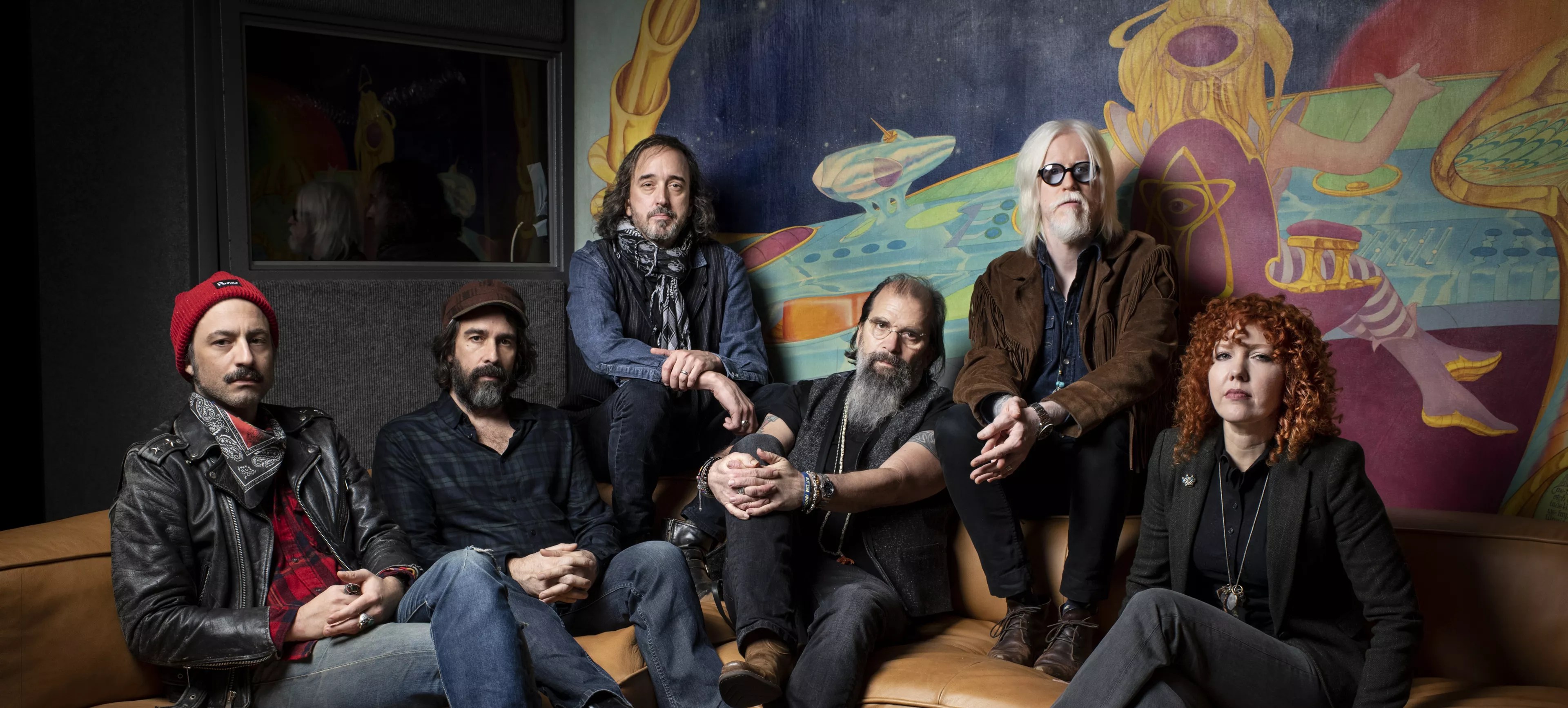
Jacob Blickenstaff

Audio By Carbonatix
Sentimentality is simply not Steve Earle’s stock-in-trade.
So it was Tuesday night, during his second Kessler Theater appearance in seven days (and his third North Texas stop in the last six weeks, having played Fort Worth’s Billy Bob’s Texas in early July) – the 66-year-old singer-songwriter kept the mood acerbic from the opening moments.
He and his bandmates in the Dukes (guitarist Chris Masterson, fiddler/vocalist Eleanor Whitmore, bassist Jeff Hill, drummer Brad Pemberton and Dallas native Ricky Ray Jackson on pedal steel and dobro) entered the room to the strains of “Happy Days Are Here Again.”
Call it a choice with a particularly bitter kick, given the nationwide resurgence of the Delta variant of COVID-19, never mind the fact that everyone in attendance was required to be masked upon entering the venue. Still, even if the world was all sunshine and roses, the sandpaper-voiced Earle would’ve attacked his expansive catalog the same way, tumbling from one tune to another, opening with “Feel Alright,” the title track from his 1996 LP, and ripping into 1986’s “Guitar Town” and “Hillbilly Highway” with a polished ferocity. His long-time collaborators the Dukes kept pace, delivering a thoughtful wall of sound to complement Earle’s tough, compact and beautiful lyrics.
That said, it wasn’t brute strength throughout: Earle, fitted with a mandolin, leaned into his folksier, lighter side during a three-song stretch of “Little Emperor,” “Mystery Train Part II and “The Galway Girl,” all of which sparkled.
Earle scarcely spoke during the first 10 or so songs – a potent anti-gun provocation before “The Devil’s Right Hand” notwithstanding. Once the final chords of a stripped-down “Copperhead Road” faded, however, he explained the evening’s layout, which found the two-hour setlist effectively divided into loosely themed segments, including “some songs to get me girls – vaccinated girls; I card ’em,” Earle cracked.
“Normally, we make a record, and go out and tour,” Earle said. “We made a record, and booked a tour – and it didn’t happen, like so much else didn’t happen.”
That record – last year’s Ghosts of West Virginia, focused on the 2010 Upper Big Branch coal mine explosion that claimed the lives of 29 men, and which Earle and his bandmates showcased generously – begat another, one Earle described Tuesday as “the record I could never imagine making in a million years.”
J.T., released this past January, indeed stemmed from unutterably tragic circumstances: The death, at the age of 38, of his acclaimed singer-songwriter son Justin Townes Earle from a drug overdose.
Standing inside the Kessler, just three days from the first anniversary of his son’s death, Earle spoke plainly about how the act of recording his late son’s songs – “as good as anyone’s,” as he put it – “really was the best thing for me.”
The suite of Justin’s material Earle performed Tuesday (“Far Away in Another Town,” “The Saint of Lost Causes” and “Harlem River Blues”), ached with the weight of a grieving father even as it reflected the evident pride Earle feels for his son’s work.
The freighted moment was one Earle almost seemed to anticipate, speaking earlier in the set before the searing “It’s About Blood.” While he was referencing coal miners, livid at the loss of life and raging at powers that be, he could’ve just as easily been speaking about his own last 12 months: “Everybody grieves differently. Some people get quiet and don’t talk at all; some people get angry and talk a lot.”
It was yet another reminder, in an evening brimming with them, that while Steve Earle assiduously avoids the maudlin, he does not shy away from the emotional. Life unfolds as it will; you take the good and the bad as it comes, and at the end of the day – whether you’re grappling with a pandemic, or the acute pain of a lost loved one – the show must go on.